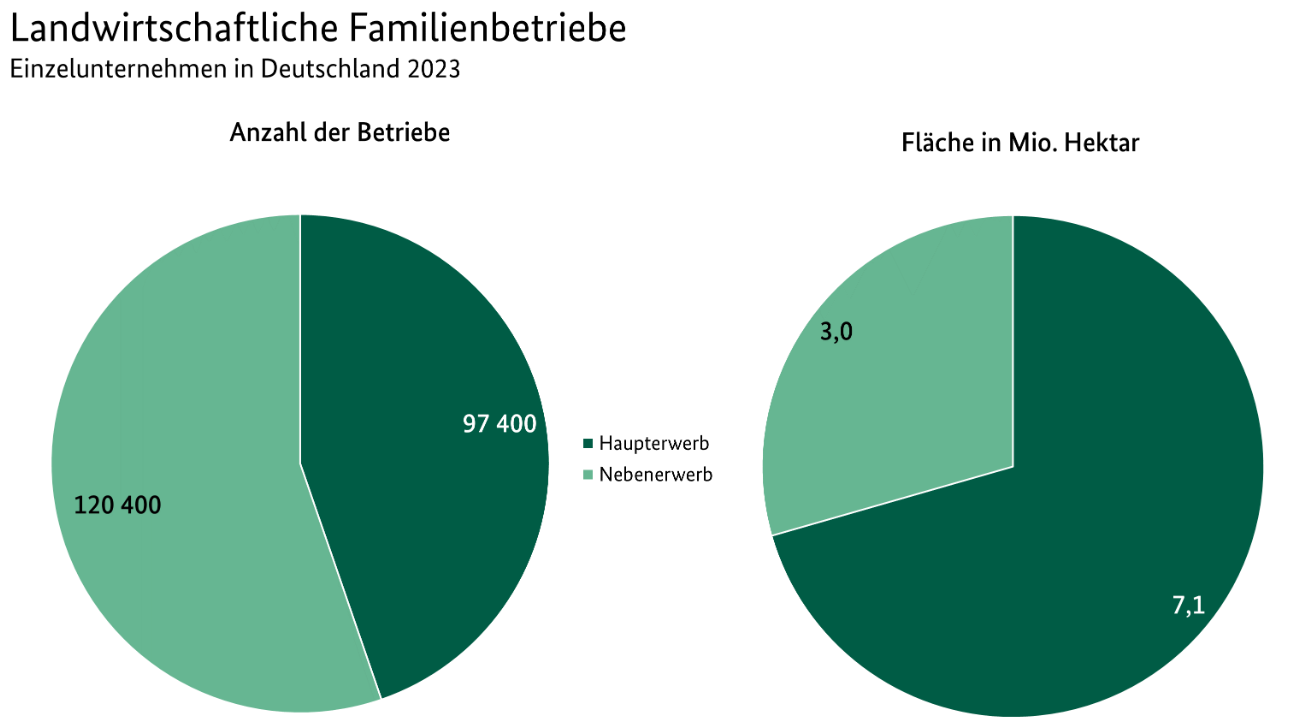Farming as a sideline — What tax benefits are there?





Agricultural businesses are under increased pressure as to what Sales prices tackles. Since it always goes back to higher editions when it comes to environmental protection and sustainability, the self-costs can often not be covered. In order to be able to run the business effectively, they must expand their operations. When faced with the decision, it is often in favor of continuing in subsidiary. The reasons may therefore be that they have the farm from sense of tradition and don't want to give it up and because a small business is not profitable in the main sector.
In Germany there are a few large companies cultivating 82 percent of the used agricultural area. More than half of the businesses are now run on a sideline basis, but this accounts for only 18 percent of the total agricultural area in Germany. In the Northern and Eastern Federal States, around 40 percent of the companies work on a sideline basis, in Baden-Württemberg, for example, almost 70 percent.
Although small businesses are more environmentally friendly and better regarded by the population, they do not receive enough funding. For example, farms with fruit trees can only apply for frost aid at least 300 per hectare. EU agricultural subsidies are also paid out per area — anyone who cultivates a particularly large area receives a particularly large amount of support. And this is despite the fact that small businesses in the region are doing better, diversifying their income and securing jobs, as well as economic flows in the region. Agriculture is a capital-intensive sector that requires large investments in machinery. Loans are often reluctant to give to small businesses, which therefore increases the problem of high requirements associated with investments.

As a sideline, a company must at least have 2 hectares of agricultural land — a smaller area is considered hobby farming. The purchase may not exceed the amount of income from the main activity. The acquisition of the owner is decisive, i.e. the main source of income is the main activity as an employee or official in a company.
The working week must not exceed 48 hours of main and secondary work.
Only conditionally. Employers may contractually state that they want to be informed when employees work on a part-time basis. There is only a reporting obligation if there is a corresponding clause in the employment contract. Clauses that regulate a permit requirement are ineffective, as employers are not authorized to do so. In fact, there is no permit requirement for employees, as they generally have a right to secondary employment. One reason for the reporting requirement is that the high number of working hours can have a negative impact on their work. This can also lead to a termination lead. This can be problematic during harvest time, for which you do not have the right to special leave.
Part-time businesses are subject to income tax. However, operating expenses may vary to be discontinued from tax. In addition, part-time businesses can usually benefit from the small business regulation. If you make use of it you don't have to pay sales tax to the tax office. If the sales are not higher than 100,000 euros and not higher than 25,000 euros in the previous year, you can make use of the small business regulation. The business tax is not applicable if the primary production Is not exceeded. This is because farms themselves are exempt from business tax.
Various regulations relating to social security, sales tax, business tax and income tax can become effective, depending on whether it is a main or subsidiary acts.
If you work full-time as an employee, you are covered by health, long-term care and pension insurance. On the other hand, a main agricultural holding is subject to social insurance in the agricultural health insurance fund (LKK). It is true that farmers are considered entrepreneurs. However, they generate profits similar to the income of an employed person, which is why they are also treated as persons subject to insurance. If the business is run independently as a sideline, the obligation to take out insurance with the agricultural health insurance fund does not apply. If a partner becomes unemployed, this person counts as an employee and is subject to insurance, even if they do not work. That can become expensive for part-time businesses. If you are employed at the company because it is registered with a partner, the hours are added up, defined in the sense of working hours act.
You can also be insured with the Agricultural Retirement Fund (LAK) as a sideline in order to make additional provisions, but this is not mandatory.
For financial reasons, including those associated with structural change in agriculture half of the farms are run on a sideline basis. There are a few things to consider which is employment law that governs the number of hours and emoluments concerns, and taxes and insurances.
The agricultural part-time work is not to be confused with ancillary work. One type of ancillary activity can, for example, be regional direct marketing in the form of weekly market stands. You are still looking for a suitable ERP software? Have a look at FrachtPilot ;) Book a free webinar or try FrachtPilot for free to get to know our scalable coud software. We're looking forward to seeing you!